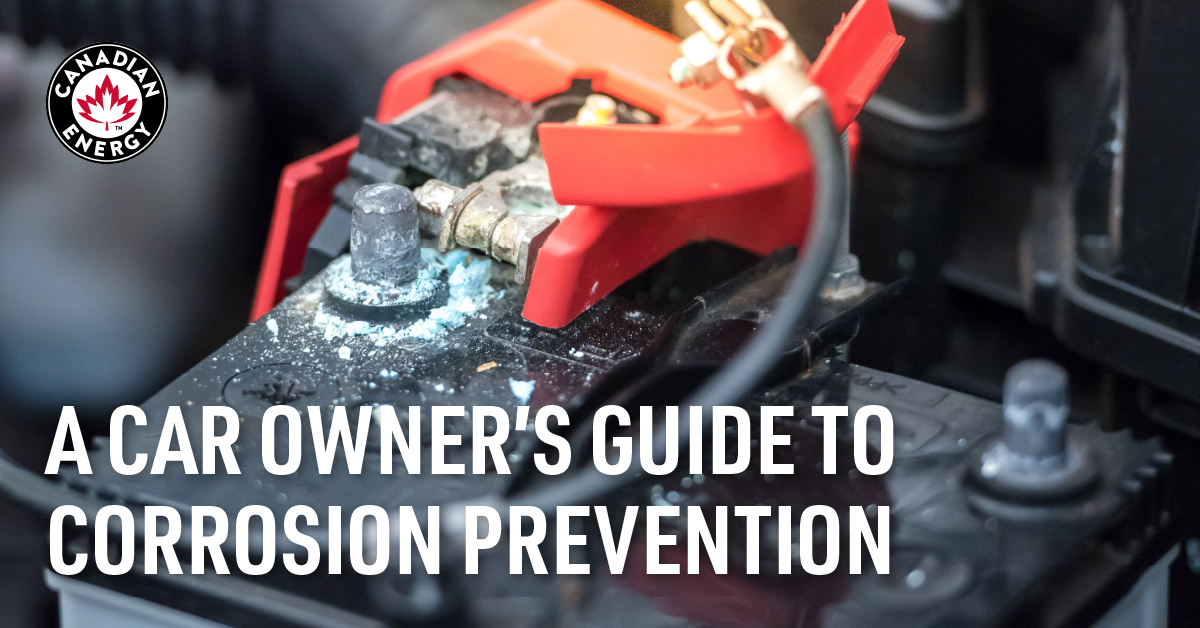Sweaty Terminals: A Car Owner's Guide to Corrosion Prevention

Your car’s battery is the heart of its electrical system—whether it’s starting your engine, powering your lights, or charging your devices. But have you noticed a "sweaty" appearance or a build-up of white, blue, or green fuzz on your battery's terminals? These are tell-tale signs of corrosion, and they shouldn’t be ignored.
Understanding and addressing battery corrosion is an essential part of car maintenance. Here’s everything you need to know about identifying, managing, and preventing corrosion on your car's battery terminals.
What Are the Signs of Corrosion?
The most visible sign of battery terminal corrosion can be a "sweaty" or moist look around the terminals. You might also notice a powdery substance that's white, blue, or greenish in colour. This build-up usually occurs on the terminals (the metal connectors at the top of your battery) or around the cables that connect to them.
While it’s a natural part of battery wear and tear, excessive corrosion can indicate underlying issues and can interfere with the performance of your car.
What Causes Terminal Corrosion?
Battery corrosion results from a chemical reaction that occurs when several elements combine—moisture, air, hydrogen gas released by the battery, and, occasionally, salt from the environment. When these elements interact, they form the corrosive build-up you see on your terminals.
Several factors can contribute to the formation of corrosion, including:
- Battery Age: Older batteries are more prone to leaking and emitting gases that accelerate corrosion.
- Heat: High temperatures can increase the evaporation of battery fluids, making corrosion more likely.
- Fluid Leaks: Leaks from the battery itself can contribute to the development of the corrosive build-up.
- Lack of Maintenance: Without regular cleaning and care, corrosion can build up over time, reducing battery performance.
Why You Shouldn’t Ignore Battery Corrosion
While battery terminal corrosion is a common issue, it’s not something that should be overlooked. If left unattended, corrosion can lead to several problems:
- Reduced Battery Life: Corrosion creates resistance, which makes it harder for your battery to do its job and shortens its overall lifespan.
- Electrical Issues: Corrosion can interrupt the flow of electricity, causing your car’s electrical components to malfunction.
- Difficulty Starting Your Car: A corroded battery terminal can result in poor connections, which can lead to difficulty starting your engine, especially in colder weather.
By addressing corrosion early, you can avoid these issues and keep your car running smoothly.
How to Prevent Battery Corrosion
Fortunately, there are simple steps you can take to prevent battery corrosion from affecting your car. Regular care and a few smart practices can make all the difference.
1. Avoid Overcharging or Undercharging Your Battery
Improper charging habits can lead to excess hydrogen gas being released, which accelerates corrosion. Use a reliable charger if you’re maintaining your battery yourself, and ensure your alternator is functioning correctly.To learn more about how to properly maintain your vehicle's battery, read our blog post on best practices for reducing battery drainage.
2. Clean Your Battery Regularly
A clean battery is less likely to corrode. Mix a solution of baking soda and water, and use an old toothbrush or terminal cleaner to gently scrub any dirt or build-up from your terminals. Always wear gloves and safety goggles when cleaning, as battery acid can be harmful.

3. Apply a Terminal Protector
Prevent moisture from reaching your terminals by using dielectric grease or a battery terminal protector spray. These products create a protective barrier that stops gases and moisture from interacting with the metal.
4. Check for Leaks
Inspect your battery regularly for signs of leaking fluid, bulging, or cracks. If you spot any of these issues, it might be time for a replacement.
5. Monitor Your Battery’s Condition
Have your battery tested by a professional as part of your car's routine maintenance. They can alert you to early signs of wear and ensure your battery is running at its best.
Final Thoughts
Battery terminal corrosion is a common issue that every car owner should know how to identify and manage. While it may look harmless, ignoring corrosion can lead to costly repairs and frustrating car troubles.
By understanding the causes, recognizing the signs, and following prevention tips, you can keep your battery in excellent condition and ensure your car remains reliable.
Need more advice on how to deal with corrosion? Check out our video on what to do if your battery has corrosion here.
